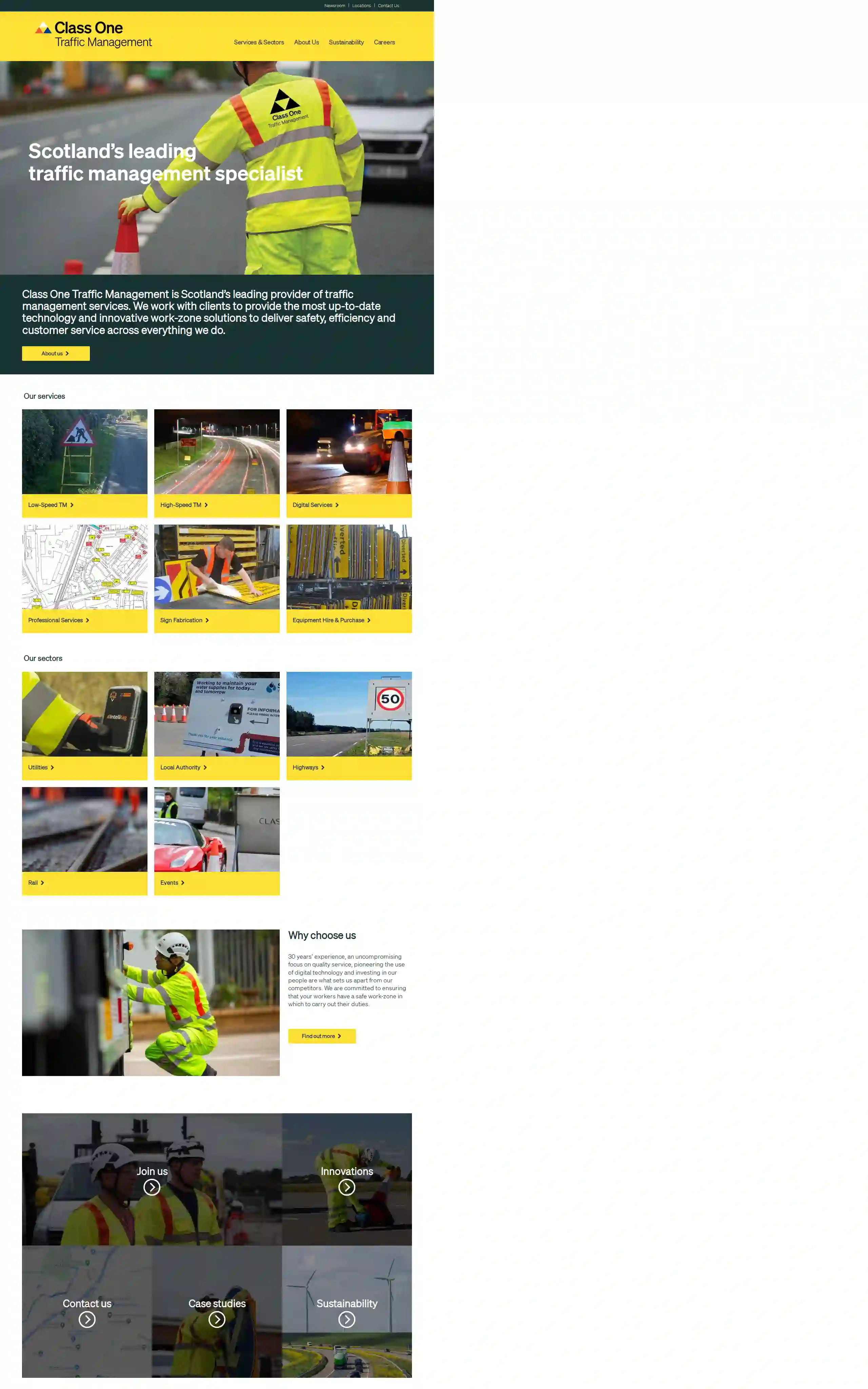Excavation Contractors Rutherglen
Top 10 Excavating Contractors in Rutherglen
Receive up to 3 Excavation Contractor quotes for your project today! Compare profiles, reviews, accreditations, portfolio, etc... and choose the best service.
- St
Stewart Landscapes (Contracts) Ltd
48 reviewsGlasgow, GB- Services
- Why Us?
Get Quote - A1
A1 Road Surfacing Ltd
4.621 reviewsGlasgow, GB- Services
- Why Us?
Get Quote 
Scotcast Ltd
4.6144 reviews5 Palacecraig Street, Coatbridge, ML5 4RY, GBAbout Scotcast Scotcast is a leading supplier of building, landscaping, and garden products in the UK. We offer a wide range of high-quality products at competitive prices. Our team is committed to providing excellent customer service and ensuring that our customers are satisfied with their purchases. We have been in business for many years and have a proven track record of providing our customers with the best possible service. We are committed to providing our customers with the best possible experience, from the moment they visit our website to the moment they receive their order. We are proud to be a family-run business and we are committed to providing our customers with the best possible service. We are always looking for ways to improve our business and we are always happy to hear from our customers.
- Services
- Why Us?
- Gallery
Get Quote
Enviro-Clean Ltd | Drainage Maintenance and Cleaning | Septic Tank Services
4.759 reviewsGlasgow, GBEnviro-Clean Scotland: Your Trusted Partner for Industrial Drainage & Waste Management Enviro-Clean Scotland is a UK-wide company specializing in industrial drainage and waste management. We offer a comprehensive range of services to meet the needs of our clients, from sewer and drain cleaning to high-pressure water jetting and vacuum excavation. We are committed to providing our clients with the highest quality services, delivered with a focus on safety, efficiency, and environmental responsibility. Our Mission Our mission is to provide our clients with the highest quality industrial drainage and waste management services, delivered with a focus on safety, efficiency, and environmental responsibility. We are committed to exceeding our clients' expectations and building long-term relationships based on trust and mutual respect. Our Values At Enviro-Clean Scotland, we are guided by the following values: Safety First Customer Focus Environmental Responsibility Integrity Teamwork Our Experience Our team has extensive experience in the industrial drainage and waste management industry. We are equipped to handle a wide range of projects, from small-scale repairs to large-scale construction projects. We are committed to providing our clients with the highest quality services, delivered with a focus on safety, efficiency, and environmental responsibility.
- Services
- Why Us?
- Gallery
Get Quote- Bu
Burnside Plant Hire Ltd
53 reviewsGlasgow, GB- Services
- Why Us?
Get Quote - EA
EA Construction Scotland Ltd
1Glasgow, GB- Services
- Why Us?
Get Quote 
McCann Builders Ltd
54 reviewsOld Station Road, Biggar, South Lanarkshire, ML12 6DQ, GBFAMILY OWNED CONSTRUCTION COMPANY SINCE 1958 We are a Biggar based building company, that undertake all aspects of construction works in Lanarkshire & Central Scotland. Specialising in new & self builds, extensions, renovations, internal alterations, commercial & agricultural works, driveways and bespoke designs. McCann Builders are NHBC registered and are also members of the Federation of Master Builders. We pride ourselves in the number of houses constructed by traditional building methods, our specialist knowledge in this field is beyond compare.
- Services
- Why Us?
- Gallery
Get Quote- Da
Das Contracts
4.65 reviewsGlasgow, GB- Services
- Why Us?
Get Quote - Wa
Water and Pipeline Services
55 reviewsGlasgow, GB- Services
- Why Us?
Get Quote 
Class One Traffic Management
1Class One House, Seabegs Road, Class One HouseSeabegs RoadBonnybridge, Bonnybridge, FK4 2AQ, GBAbout Class One TM For 30 years, Class One Traffic Management has been keeping Scotland’s road workers and road users safe by providing professional traffic management services. We work with clients in Highways, Local Authorities, Utilities, Rail and Events to ensure their workers can carry out their duties in a safe work zone. Why Choose Us Class One Traffic Management provides a professional, first-class service on all aspects of their works. They have successfully delivered numerous projects for us over a long period of time. Class One holds a “preferred” status with us, less than 2.5% of our total supply chain have received this accolade. Accreditations Class One Traffic Management is fully accredited and insured, ensuring that our clients can be confident in our ability to deliver a safe and efficient service. Health & Safety We are committed to providing a safe working environment for our employees and the public. We have a comprehensive health and safety policy in place and we are constantly striving to improve our safety performance. Case Studies We have a proven track record of delivering successful traffic management projects. Our case studies demonstrate our ability to work effectively with our clients to achieve their objectives.
- Services
- Why Us?
- Testimonials
- Gallery
Get Quote
Over 11,537+ Excavation Pros on our platform
Our excavation companies operate in Rutherglen and surroundings!
ExcavationHQ has curated and vetted the Best Excavation Pros in Rutherglen. Find the most reliable business today.
Frequently Asked Questions About Excavation Contractors
- Project Size and Scope: Larger, more complex excavations naturally take longer.
- Soil Conditions: Rocky or challenging soil types can slow down progress.
- Site Accessibility: Limited access might require more time for maneuvering equipment and hauling materials.
- Weather: Inclement weather can cause delays.
- Permitting and Inspections: Waiting for permits or inspections can extend the timeline.
- Clearly Define the Scope: Outline the project's goals, including the excavation area, depth, grade, and intended use.
- Obtain Necessary Permits: Research and acquire any required permits from your local authorities.
- Mark Utility Lines: Contact your utility companies to locate and mark underground utilities to prevent damage.
- Communicate with Neighbors: Inform your neighbors about the project's timeline and potential noise or disruptions.
- Prepare the Site: Clear any obstacles, such as vegetation, furniture, or structures, from the excavation area.
- Discuss Safety Protocols: Review safety procedures with the contractor to ensure a safe work environment.
How long does an excavation project take?
What is the difference between cut and fill excavation?
Cut: Involves excavating soil from an area where the existing grade is higher than the desired grade.
Fill: Refers to using the excavated soil ('cut' material) to raise the grade in an area where the existing grade is lower than desired.
This method minimizes the need to import or export soil, reducing costs and environmental impact. It's commonly used for site preparation, road construction, and landscaping.
What should I do before excavation starts?
What is the difference between topsoil and subsoil?
Topsoil: The uppermost layer, typically rich in organic matter, nutrients, and microorganisms. It's essential for plant growth and is often darker in color.
Subsoil: The layer beneath the topsoil, containing less organic matter and generally denser. It provides support for roots but is less fertile than topsoil.
During excavation, topsoil is often removed and preserved separately for later use in landscaping, while subsoil is typically used for backfilling or other less demanding applications.
How long does an excavation project take?
- Project Size and Scope: Larger, more complex excavations naturally take longer.
- Soil Conditions: Rocky or challenging soil types can slow down progress.
- Site Accessibility: Limited access might require more time for maneuvering equipment and hauling materials.
- Weather: Inclement weather can cause delays.
- Permitting and Inspections: Waiting for permits or inspections can extend the timeline.
What is the difference between cut and fill excavation?
Cut: Involves excavating soil from an area where the existing grade is higher than the desired grade.
Fill: Refers to using the excavated soil ('cut' material) to raise the grade in an area where the existing grade is lower than desired.
This method minimizes the need to import or export soil, reducing costs and environmental impact. It's commonly used for site preparation, road construction, and landscaping.
What should I do before excavation starts?
- Clearly Define the Scope: Outline the project's goals, including the excavation area, depth, grade, and intended use.
- Obtain Necessary Permits: Research and acquire any required permits from your local authorities.
- Mark Utility Lines: Contact your utility companies to locate and mark underground utilities to prevent damage.
- Communicate with Neighbors: Inform your neighbors about the project's timeline and potential noise or disruptions.
- Prepare the Site: Clear any obstacles, such as vegetation, furniture, or structures, from the excavation area.
- Discuss Safety Protocols: Review safety procedures with the contractor to ensure a safe work environment.
What is the difference between topsoil and subsoil?
Topsoil: The uppermost layer, typically rich in organic matter, nutrients, and microorganisms. It's essential for plant growth and is often darker in color.
Subsoil: The layer beneath the topsoil, containing less organic matter and generally denser. It provides support for roots but is less fertile than topsoil.
During excavation, topsoil is often removed and preserved separately for later use in landscaping, while subsoil is typically used for backfilling or other less demanding applications.